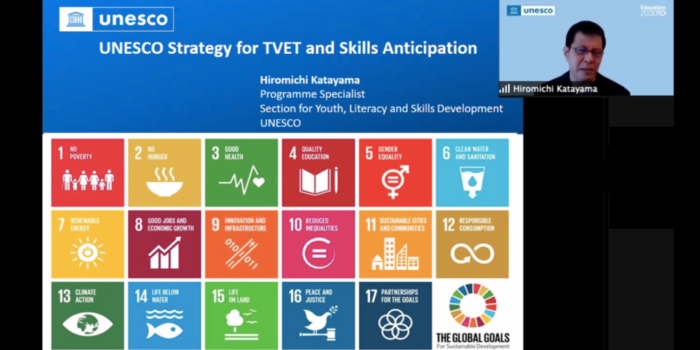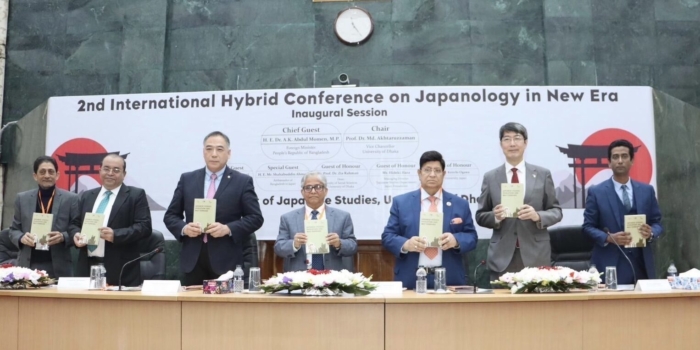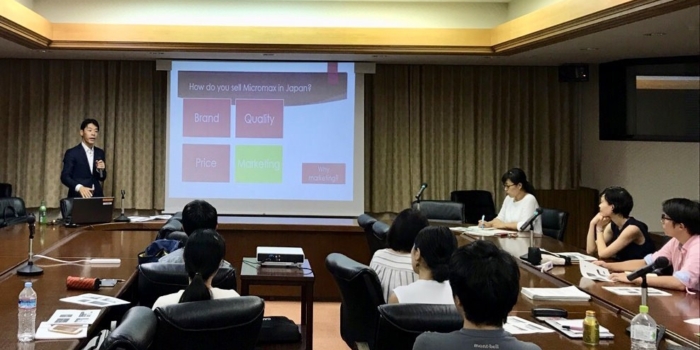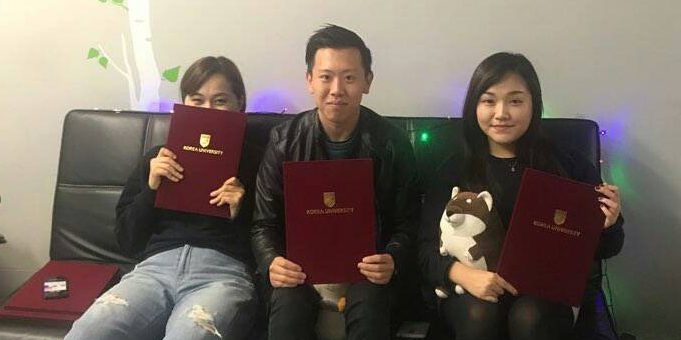Dr. Hiromichi Katayama, a Programme Specialist at UNESCO Headquarters, delivered a lecture titled UNESCO Strategy for Technical and Vocational Education or Training (TVET) and Skills Anticipation on January 15th, 2022, as part of the series United Nations and Sustainable Development Goals (SDGs). Dr. Hiromichi Katayama obtained his master’s degree from Kobe University GSICS and his doctoral degree from the University of Pittsburgh, in the United States. He used to be a key person in Japan International Cooperation Agency (JICA) and later started working at UNESCO Headquarters.
The session began with an introduction to UNESCO. Then, Dr. Katayama not only highlighted the sector’s close links with SDGs 4 (Quality Education), 5 (Gender Equality), 8 (Good Jobs and Economic Growth), and 13 (Climate Action) but also explained the way the TVET department at UNESCO works with other relevant sectors. After that, he gave a brief overview of the UNESCO Strategy for TVET, which was concluded in 2021. After that, Dr. Katayama started a detailed discussion about Skills Anticipation & Assessment, as one of the cross-cutting interventions in that strategy, which include sharing future job requirements and a methodology of skills forecasting. About the challenges faced by TVET currently, multiple ministry data sources make it difficult to collect and manage data as well as to use it. To solve such a problem, Dr. Katayama mentioned the potential use of obtaining big data related to each country online.
For a deeper understanding of TVET skills forecasting and big data analysis, the professor used Myanmar as a concrete example by showing its occupational distribution, labor force demand and occupational skills demand through big data analysis in 2017-2018. It also showed the advantages of big data in comparison with labor force surveys. At the end of the presentation, Dr. Katayama introduced the future direction of TVET and the outline of the new UNESCO strategy for TVET (2022-2029) which will be published soon to show the focus of future UN development in the TVET sector.
Dr. Katayama was very willing and patient to provide detailed answers to all questions from the audience. This lecture provided a good opportunity for everyone to learn about TVET, increase their knowledge, and get prepared for future opportunities by communicating with the experienced lecturer.
Authored by Ji Xinyu (Master’s Student)
Related






